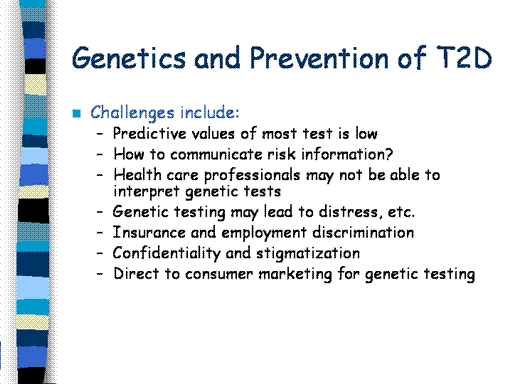Some
scientists and health professionals doubt that genetic testing will help
prevent chronic diseases, such as T2D for a variety of reasons.
First, the predictive value of most genetic tests is low, and
risk estimates do not account for well-known environmental determinants
of the disease. Secondly, it is
unclear whether knowledge about one’s genetic risk will increase
motivation to engage in disease interventions.
Thirdly, genetic testing presents education and
information-dissemination challenges that were outlined in detail by the
Secretary’s Advisory Committee on Genetics, Health and Society.
Fourthly, most health professionals are currently unqualified to
interpret the results of genetic tests.
Fifthly, genetic testing may lead to significant distress, the
magnitude of which is likely to vary as a function of test results,
coping skills, risk perception and other characteristics.
These factors relate directly to other concerns such as insurance
and employment discrimination, confidentiality and stigmatization based
on knowing that one is at high genetic risk.
